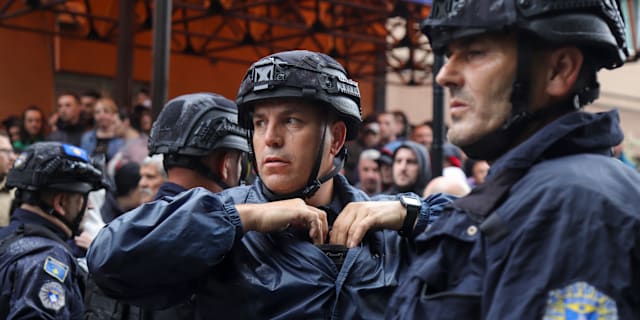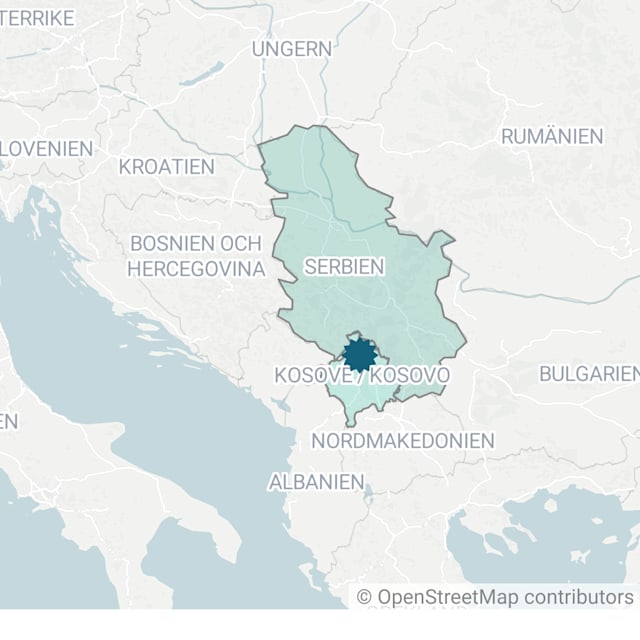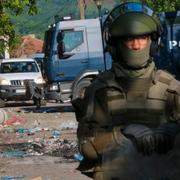
Kosovo police in Zvecan earlier this week. Bojan Slavkovic / AP
Swedish EU police in Kosovo: The protests can continue
After the violent protests on Monday, Tuesday morning in northern Kosovo has been calm, according to both Serbian and Albanian media.
But there is a risk that the violence will continue this week. This is what Swedish Lars-Gunnar Wigemark, head of the EU's police and intervention in Kosovo, told SVT Nyheter.
- If the new mayors insist on continuing to go back to their offices, it is clearly a red flag for the local Serbs who perceive them as illegitimate, he says.
The ethnic Serb protesters want the ouster of four ethnic Albanian mayors, since they were appointed after local elections that were boycotted by a majority of the mainly ethnic Serb population in the north.
The mayor of the town of Zvecan, the scene of the biggest degenerate protests yesterday, has chosen not to work from the town hall today, according to Serbian Politika. At the same time, Reuters reports that tens of NATO soldiers are ready for new protests at the municipal hall.
The Kosovo–Serbia conflict
* Kosovo declared independence in 2008 after the Yugoslav wars of the 1990s. Serbia has not accepted the secession and a NATO peacekeeping force has been in place since 1999.
* Ethnic Albanians make up more than 90 percent of the population of Kosovo as a whole, but in the northern parts of the country, ethnic Serbs are the majority and opposition to the declaration of independence remains strong there.
* The local elections in April this year were boycotted by Kosovo Serbs, which allowed Albanian mayors to take power in four cities in the north - despite a voter turnout of less than 3.5 percent.
* The Kosovo Serbs who are now protesting are demanding that the newly appointed mayors be removed and that the police withdraw. Serbia has strengthened its military presence on the border.
* The EU and the US recognize Kosovo's independence and have strongly condemned how the mayoral appointments could destabilize the situation.

Kfors soldier in Kosovo. Dejan Simicevic / AP
The EU condemns the violence - demands a rapid de-escalation
The EU calls on the Kosovo authorities and protesting ethnic Serbs to immediately de-escalate tensions in the northern parts of the country.
"We expect the parties to act responsibly and find a political solution through dialogue immediately," writes EU foreign affairs chief Josep Borrell on Twitter.
Last night, protesters clashed with forces from the NATO-led peacekeeping force Kfor. Over 30 soldiers were injured, ten of them seriously.
The ethnic Serbs are demanding the withdrawal of Kosovo police forces and the removal of the mayors of four cities. The mayors were elected in April in elections that the Kosovo Serbs boycotted.
Russia also calls for a de-escalation but accuses the West of placing the blame on "unarmed Serbs who want to defend their righ

Inga kommentarer:
Skicka en kommentar